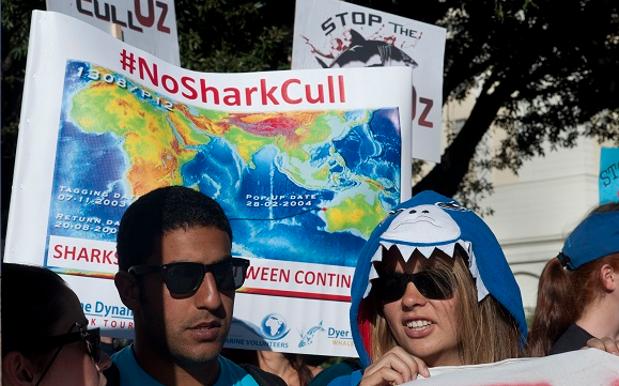The program of catching and killing sharks off the coast of Western Australia has been the subject of intense scrutiny since it was implemented earlier this year. Today, a state government review of the controversial shark cull has given it the go-ahead to continue for another three years, albeit with a view to replacing the baited hooks that are currently used.
Late last year, a group of marine scientists wrote an open letter to the W.A. government condemning the killing of sharks, and calling for non-lethal measures to be used instead. In spite of this, the program was rolled out in January of this year, with the first kill being a tiger shark that was initially misidentified as a bull shark.
The cull, devised in response to seven shark attack deaths in W.A. waters between 2010 and 2013, remained in place until the end of the trial period in April. By that time, 172 sharks had been caught, including 50 that were destroyed because they were above the designated three-metre kill length.
Environmental activists raised concerns about the safety and viability of the drum lines, saying that they pose a danger to protected species including sea turtles and dolphins. W.A. premier Colin Barnett defended them, saying that the only non-shark species to be hooked in the period were seven rays and one blowfish.
Barnett went on to say that the program has “significantly less environmental impact” than other shark culls around the world, and claimed that it is “well regarded” by global shark control authorities, including those in
South Africa and
Madagascar.
While recommending that the program be allowed to continue, today’s report also calls for the W.A. government to be “receptive to new fully tested and viable technology to complement or ultimately replace” the baited hooks that are currently used.
It also recommends “additional training” for contractors in the areas of animal handling and responding to activists, and the use of acoustic “pingers” to deter whales and dolphins from the hooks.
via The Guardian
Picture: Rodger Bosch via Getty Images




